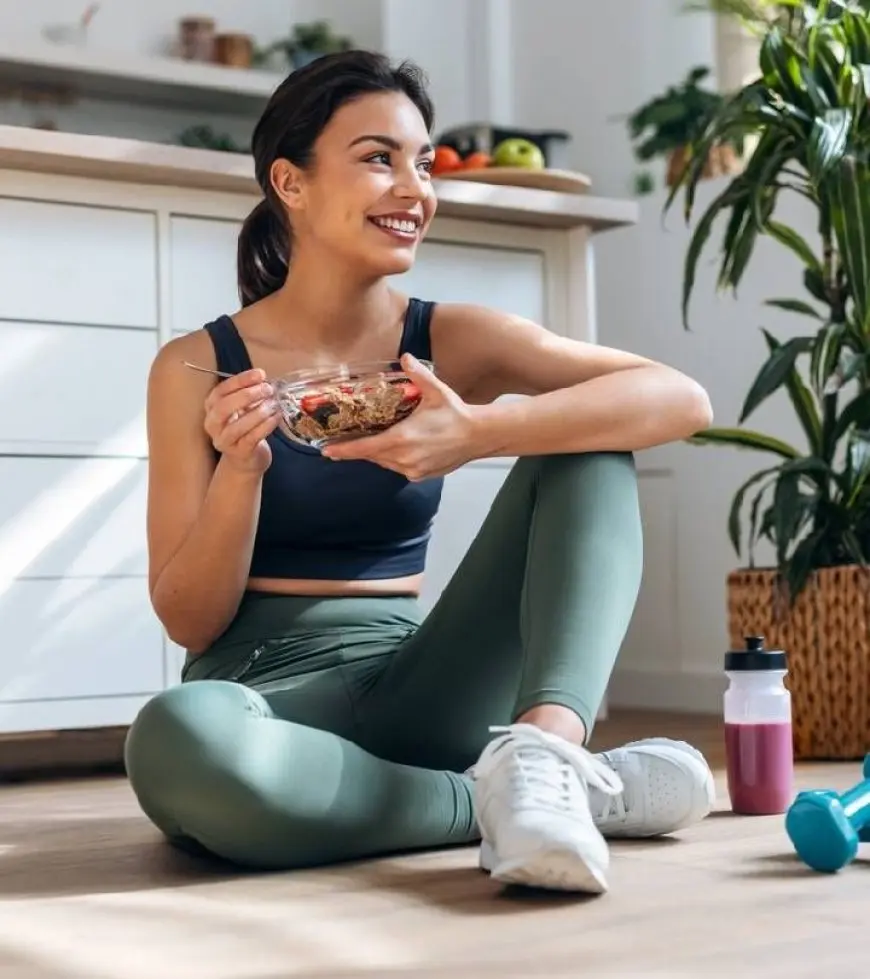Healthy Eating Tips for Athletes
Healthy Eating Tips for Athletes

Athletes need a well-balanced diet to fuel their performance, enhance recovery, and maintain overall health. Proper nutrition plays a critical role in achieving peak performance, and understanding how to balance macronutrients, hydration, and timing can make all the difference. Here are essential healthy eating tips for athletes to optimize their diet and meet their physical demands.
1. Prioritize a Balanced Diet
Athletes require a variety of nutrients to support their active lifestyles. A balanced diet should include:
- Carbohydrates: The primary energy source, especially for high-intensity training. Found in whole grains, fruits, vegetables, and legumes.
- Proteins: Essential for muscle repair and growth. Found in lean meats, eggs, dairy, tofu, and beans.
- Fats: Needed for long-term energy and hormone production. Found in nuts, seeds, avocados, and fatty fish.
2. Time Your Meals Strategically
Meal timing is crucial for maintaining energy and promoting recovery:
- Pre-Workout: Eat a meal rich in carbs and moderate in protein 2–3 hours before exercise.
- Example: Oatmeal with banana and a boiled egg.
- Post-Workout: Focus on protein and carbs within 30–60 minutes after training to replenish glycogen stores and repair muscles.
- Example: Grilled chicken with sweet potatoes and steamed broccoli.
- Snacks: Keep healthy snacks on hand for sustained energy between meals.
- Example: Greek yogurt with honey and berries.
3. Stay Hydrated
Hydration is just as important as food:
- Drink water consistently throughout the day, not just during workouts.
- For longer sessions, consider sports drinks with electrolytes to replenish sodium, potassium, and magnesium lost through sweat.
- Monitor hydration levels by checking urine color—pale yellow is ideal.
4. Incorporate Nutrient-Dense Foods
Focus on foods that deliver the most nutrients per calorie to support your training:
- Leafy Greens: Spinach, kale, and arugula provide essential vitamins and antioxidants.
- Whole Grains: Quinoa, brown rice, and oats offer sustained energy.
- Fatty Fish: Salmon and mackerel are rich in omega-3 fatty acids for inflammation reduction.
- Colorful Fruits and Vegetables: Variety ensures you get a broad spectrum of nutrients.
5. Avoid Processed Foods
Processed foods often lack essential nutrients and contain excess sugar, salt, and unhealthy fats:
- Skip sugary drinks, fried snacks, and packaged baked goods.
- Replace them with whole food options like fresh fruit, nuts, and homemade energy bars.
6. Meet Your Protein Needs
Protein is vital for muscle repair, especially for strength athletes:
- Spread your protein intake evenly throughout the day.
- Example: Eggs for breakfast, grilled chicken for lunch, and lentils for dinner.
- Include high-quality protein sources such as fish, dairy, and plant-based proteins.
7. Don’t Neglect Healthy Fats
Fats provide long-lasting energy for endurance athletes:
- Incorporate healthy fats like avocado, olive oil, and nuts into your meals.
- Avoid trans fats and excessive saturated fats.
8. Consider Supplements (If Necessary)
While whole foods are the best source of nutrients, certain supplements may benefit athletes:
- Protein Powder: Convenient for post-workout recovery.
- Creatine: Supports strength training and muscle mass.
- Omega-3 Fatty Acids: Reduce inflammation and support joint health.
- Electrolytes: Useful during intense training sessions.
Always consult a healthcare professional before starting supplements.
9. Get Enough Sleep
Nutrition and sleep go hand in hand for recovery:
- Avoid heavy meals or caffeine late in the evening to promote better sleep quality.
- A good night’s sleep enhances your body’s ability to repair muscles and process nutrients.
10. Listen to Your Body
Every athlete is unique, so it’s essential to pay attention to your body’s needs:
- Notice how different foods affect your energy levels and recovery.
- Adjust your diet based on your training intensity and goals.
Sample Day of Eating for an Athlete
Breakfast: Scrambled eggs, whole-grain toast, avocado slices, and orange juice.
Snack: A handful of mixed nuts and an apple.
Lunch: Grilled chicken wrap with spinach, hummus, and a side of quinoa salad.
Pre-Workout: Banana and peanut butter.
Post-Workout: Protein shake with almond milk and berries.
Dinner: Grilled salmon, roasted sweet potatoes, and steamed asparagus.
Evening Snack: Cottage cheese with sliced peaches.
Healthy eating for athletes requires careful planning to fuel performance, aid recovery, and maintain overall health. By focusing on a balanced diet, proper hydration, and nutrient timing, athletes can optimize their training and achieve their goals. Incorporate these tips into your daily routine to maximize your potential and keep your body performing at its best.







